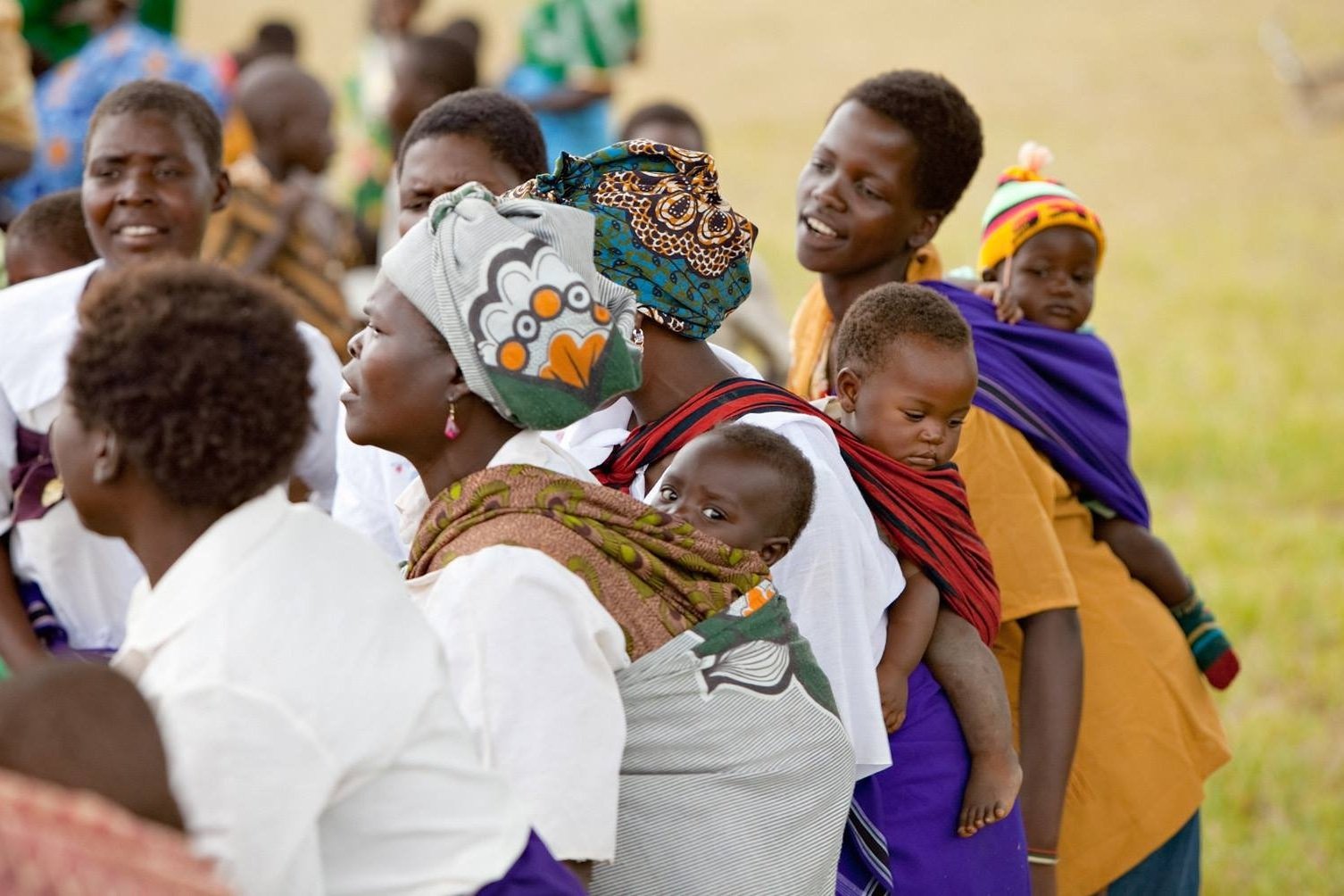
Championed a global movement
for maternal and newborn health.
Facts
Each day, in countries like Ethiopia, Malawi, and Tanzania, preventable pregnancy complications steal the lives of hundreds of women. This heart-breaking reality extends to thousands of newborns who tragically never take their first breaths.
300,000
women die from preventable pregnancy complications every year.
70%
70% of maternal deaths happen across countries in sub-Saharan Africa.
1 in 9
girls aged 15-19 years are already mothers or pregnant.
63%
of maternal deaths occur within 24 hours of childbirth.
We worked to change that
We worked in countries like Ethiopia, Malawi, and Tanzania to empower communities to tackle maternal and newborn health challenges.
What we did:
We partnered with local organisations to establish women's health groups, led entirely by the communities themselves. Empowering women to address pregnancy, family planning, and sexual health issues.
A proven solution
Our community health group method is the world's leading community mobilisation approach for maternal and newborn health, recommended by the World Health Organization and endorsed in the Every Newborn Action Plan.
Our Community Health Groups have demonstrably reduced maternal mortality by 49% and newborn mortality by 33% when at least a third of pregnant women attend group meetings.
Here’s how it worked
Identify local challenges: Women and communities come together to discuss and identify the most pressing health issues affecting their families and communities guided by a trained local facilitator.
Design solutions, together: Through facilitated discussions, the group brainstorms and designs culturally appropriate solutions to address these challenges.
Take action, lead the way: Women and mothers become empowered to lead their communities in implementing these solutions, creating lasting change.
Evaluate and adapt: The group regularly assesses the effectiveness of their actions and makes adjustments as needed, ensuring continual improvement.
And why it worked:
Reduces Mortality Rates: Our groups saw significant reductions in both maternal and neonatal mortality.
Cost-Effective Solution: As it relies on behaviour change through community meetings, groups have a large mortality impact and a low cost per individual taking part.
Empowers Communities: This approach targets and empowers disadvantaged communities, leading to a more equitable reduction in mortality across socioeconomic groups.
Sustainable Change: Up to 80% of groups remain active even after funding ends, ensuring lasting positive impact.
Scalable Model: Evidence shows it can be scaled through community health worker structures. The approach, when applied in India, reduced neonatal mortality by 24%.
See the groups in action
Discover how a women's group in Malawi identifies and solves their most pressing maternal health issues.

REAL LIFE STORIES
Birkinesh’s story
“When I had my first child, I didn’t have anyone to support me during my labour. “here was a lot of blood and my placenta didn’t come out as it should have done.”
Maternal mortality FAQs
Knowledge empowers change. Find answers to your questions about maternal mortality and discover how your understanding can make a difference.
-
While maternal deaths have fallen by 45% in the last 20 years, over the past two decades, 800 women - and 190 adolescents - still die every day - from complications during and following pregnancy and childbirth.
These complications arise when women and adolescent girls cannot choose when, if, and how many children to have, or cannot choose to have safe pregnancy, childbirth, and postpartum experiences.
Haemorrhage, hypertensive disorders, infection, and obstructed labour account for nearly three quarters of all maternal deaths. Most of these complications develop during pregnancy and sadly, could be prevented or treated if women were able to get the healthcare they need.
Around 95% of maternal deaths occur in low and lower middle-income countries, reflecting the harsh inequalities in access to quality healthcare around the world.
-
In low and lower-middle income countries, women living in rural and remote communities face barriers to accessing necessary care.
“When I had my first child, I didn’t have anyone to support me during my labour. I stayed at home; I had no way to get to the health facility. There wasn’t any transport to get me there - it would have been over 2 hours walk,” says Birkinesh, a young mother from Ethiopia who was just one of millions of women facing challenges accessing quality care during labour.
Long distances to health facilities are not the only barrier women face. Poverty, lack of information, cultural beliefs and inadequate services all create a complex landscape that limits their freedom to make informed choices, putting their lives at risk.
Our work supports women to find solutions to overcome these barriers. When communities do this, they can go on to survive and thrive.
Birkinesh says, “Our community together had built a road. The government provided us with an ambulance, so I had a way to get to the health centre to give birth to my second child. I was given lots of support during my labour. My baby was vaccinated, and health professionals gave me care after the birth.”
-
Our community health group approach, brings people together, encouraging communities to take collective, local action to address their biggest health problems, such as maternal and newborn mortality. This approach has been endorsed by the World Health Organization.
Communities form health groups, made up of people who share concerns around their most important health challenges. Trained, local facilitators guide the groups through structured meetings where they come up with their own solutions to the barriers they face in their
communities. They organise their communities to implement these solutions and evaluate their success.
So far, this approach has saved thousands of lives.If scaled up in countries with the highest rates of maternal and newborn mortality, our approach could save over 350,000 maternal and newborn lives per year.
-
Sustainable Development Goal (SDG) 3 sets a target of reducing the global maternal deaths to less than 70 per 100,000 and newborn deaths to less than 12 per 1000 live births by 2030.
Progress in most lower income countries is too slow to achieve this.
-
Health groups are predominantly made up of those who are most affected by maternal health issues such as pregnant women or new mothers. However, those who are involved in conception, antenatal, childbirth, postnatal and childcare decision-making, such as older women, men, and local leaders, can also join the groups.
These community members have important roles to play and are encouraged to engage with the groups. Men are partners, husbands, fathers, and brothers, so are also often concerned about maternal and newborn health and have a vital role to play in the health and wellbeing of their families.
Our experience is that male membership may start low, but often grows over time as they are motivated to act on their concerns and better understand their roles and responsibilities in relation to maternal health.
On one of our projects in Bangladesh, for example, health groups discussed the importance of male engagement with religious leaders who then promoted male membership during their calls to prayer.





